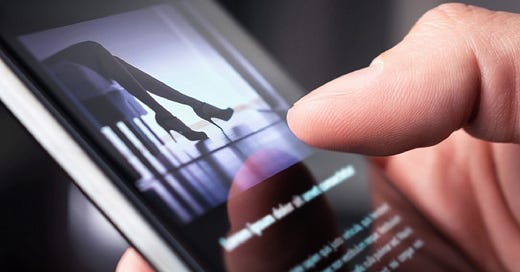The Research That’s Turning the Notion of Pornography Addiction on its Head
Is it time to do away with the idea of pornography addiction once and for all?
Darrell called me freaking out. He was frantic. He was upset. His life was falling apart, as one nightmare cascaded into another, walling up into a massive tsunami of shame. His new girlfriend had caught him watching pornography. He’d crept into his room, lifted the screen of his laptop, and thought he was all alone for a little alone time. But shortly thereafter, the door flew open and he was busted.
“She was irate,” he told me. “I just don’t know what to do, man. I think I’m addicted to pornography.” He went on to explain he had the same troubles with his previous relationship.
Reading between the lines of Darrell’s story, it began to seem as if he was caught between a rock and a hard place. Darrell had grown tired of his partners. The sex wasn’t happening. Their bedrooms had fallen silent, places where not even a whisper of affection could be heard. And from what I know about this game, it usually takes two to tango.
These kinds of relationship troubles don’t happen overnight. In fact, there’s a compelling argument that they’re perfectly natural, a result of biological shifts in hormones that humans undergo as we shift from forming a pair-bond to sticking it out for the long haul, having children, moving to the suburbs, the works.
We talked for a few hours and I reassured my friend in earnest that I didn’t feel he had a pornography addiction. For one thing, “pornography addiction” has proved a very difficult term to pin down and define. It’s tough to disentangle the moral component of sexuality from the pathological component of sexuality.
In other words: just because someone doesn’t approve of your sex life doesn’t make it a disease.
Once upon a time, homosexuality was considered a mental illness, too. The American Psychological Association didn’t remove homosexuality from its list of mental disorders until 1973.
And this is the foundation of the “is porn addictive” debate, the juxtaposition of moral approval or disapproval and the desire to engage in sex or pornography use. And now, some say we’ve jumped the gun and concluded that everyone is susceptible to pathological porn habits.
Keep reading with a 7-day free trial
Subscribe to The Science of Sex to keep reading this post and get 7 days of free access to the full post archives.





